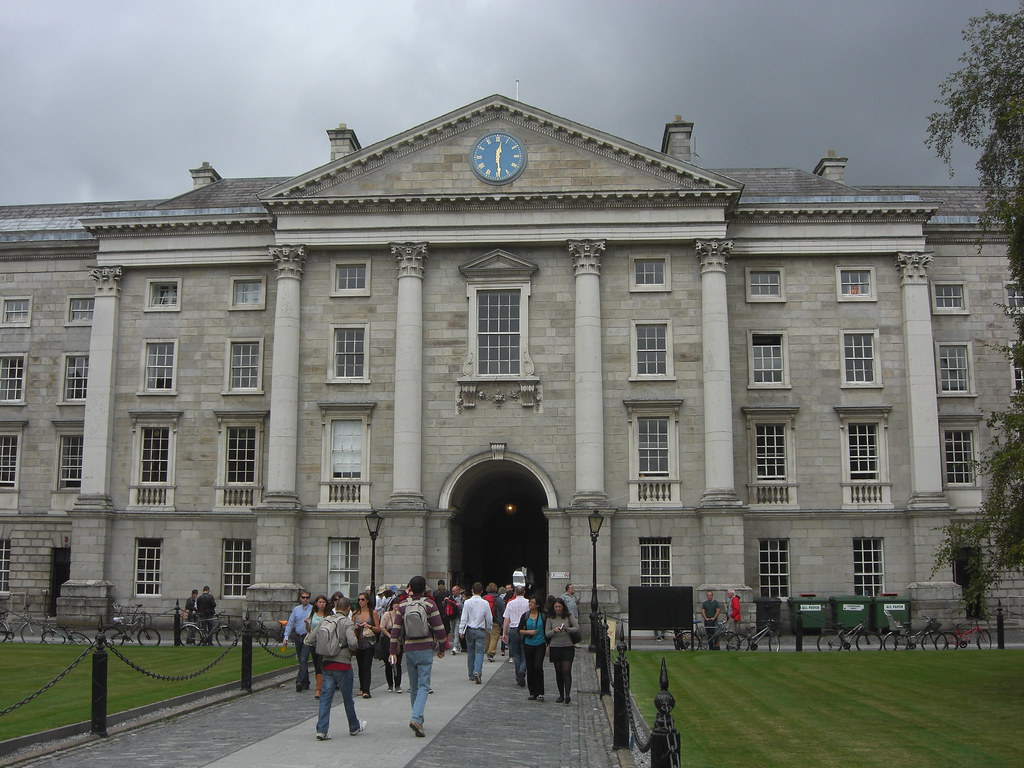Ireland has become a popular choice for international students looking for a great place to study in Europe. It is known for providing high-quality education at an affordable cost compared to other European countries. Many students choose Ireland because its universities are well-ranked and the country offers a welcoming environment for international students. One of the main reasons for Ireland’s growing appeal is that the cost of living and tuition fees are often lower than other popular study destinations such as the UK or the US. Plus, Ireland offers plenty of scholarships and financial aid options for students coming from abroad. This makes studying in Ireland a smart choice for those who want to get a world-class education without breaking the bank.

1. Competitive Tuition Fees Compared To Other European Countries
Undergraduate Programs In Ireland:
In Ireland, tuition fees for international students in undergraduate programs can vary depending on the course and university. On average, these fees range from €9,000 to €25,000 per year. Fields such as medicine or engineering tend to cost more, while arts and humanities programs are generally more affordable. Compared to the U.K. or U.S., these fees are often lower, making Ireland a more budget-friendly option for a quality education.
Postgraduate Programs In Ireland:
Postgraduate programs in Ireland are also more affordable than in countries such as the U.K. or U.S. International students can expect to pay between €10,000 to €35,000 per year for master’s or PhD programs, depending on the subject. This is great value for students who want an advanced education without the hefty costs often seen in other countries.
Scholarships and Financial Aid In Ireland:
Ireland offers many scholarships and financial aid options for international students. One example of this is the Government of Ireland’s International Education Scholarships, which provide funding to cover tuition fees and living expenses. Many universities also offer their own scholarships based on academic performance, making it easier for students to afford their education.
2. Cost of Living: Balancing Student Life in Ireland
Housing and Accommodation In Ireland:
Students in Ireland can choose between on-campus or off-campus. On-campus housing is convenient, but can be more expensive and limited in availability, especially in larger cities like Dublin. On-campus housing typically costs between €500 and €1,200 per month. Off-campus options, such as shared apartments or renting a room, can be cheaper, starting at around €500 per month, but this varies by location. Compared to other European cities like London or Paris, student housing in Ireland is generally more affordable.
Daily Living Costs In Ireland:
Living costs in Ireland depend on the city. On average, students need around €1,000 to €1,500 per month for all expenses. Here’s a breakdown of typical monthly costs:
Food: €250 – €350
Transport: €50 – €100 (students can use discounted public transport passes)
Utilities (electricity, internet, etc.): €100 – €200 Overall, these costs are on par with other major European countries, but students often feel that Ireland offers better value in terms of quality of life and services.
Student Discounts and Services In Ireland:
Ireland offers a variety of student discounts to help reduce costs. For transport, students can get discounts on buses and trains with a Student Leap Card, saving up to 30% on fares. Many museums, cinemas and entertainment venues also offer reduced prices for students, making it easier to enjoy cultural and social activities without overspending.
Useful link: Student Leap Card
3. High Return on Investment: Job Opportunities and Post-Study Work Visa
Employment Opportunities While Studying In Ireland:
International students in Ireland can work part-time while studying, up to 20 hours per week during term time and up to 40 hours per week during holidays. This gives students the chance to earn extra money and gain valuable work experience while completing their studies. Many students find part-time jobs in sectors such as retail, hospitality or campus services.
Useful Link: Citizens Information – Student Work Rights
Postgraduate Work Permit In Ireland:
After graduating from an Irish university, international students can stay and work in Ireland for up to 2 years under a third-level undergraduate program. This post-study work visa allows graduates to find employment in their field and gain work experience. The length of stay depends on the level of study – graduates from bachelor programs can stay for up to one year, while master and PhD graduates can stay for up to two years.
Useful Link: Irish Naturalisation and Immigration Service – Third Level Graduate Programmes
High Demand Sectors In Ireland:
Ireland is home to many fast-growing industries, especially in sectors such as technology, pharmaceuticals and business. Global companies such as Google, Facebook and Pfizer have large operations in Ireland, creating employment opportunities for graduates. In particular, the tech industry is growing rapidly, with IT, software development and data analysis professionals in high demand. Students who graduate in these fields often find well-paying jobs immediately after completing their studies.
Useful Link: IDA Ireland – Sectors
4. Quality Education In Ireland Matches Affordability
World-Ranked Institutions In Ireland:
Ireland is home to some of the world’s top universities, known for their academic excellence. For example, Trinity College Dublin and University College Dublin (UCD) are both highly ranked globally and offer a wide range of programs for international students. These universities are known for their strong teaching quality, research output, and innovation, making Ireland an attractive destination for students seeking a high-quality education.
Useful link: QS World University Rankings – Ireland
Strong Academic Support:
Irish universities provide excellent student support services to ensure academic success. This includes access to libraries, tutoring, career services, and mental health resources. Many institutions also offer opportunities for students to get involved in research projects, particularly in areas such as science, technology, and business. These resources help students get the most out of their education, and the strong academic foundation makes the investment in tuition fees worthwhile.
English Language Education In Ireland:
A major advantage of studying in Ireland is that all university programs are taught in English, making it an accessible destination for international students from around the world. Students don’t have to worry about learning a new language to study here, which can be a barrier in other European countries. This also helps students integrate into academic life more easily and improves their chances of succeeding in the job market after graduation.

5. Affordable European Getaways: Travel and Explore Ireland
Proximity to major cities in Europe:
Ireland is a great location for students who want to explore other parts of Europe. Major European cities like London, Paris, and Amsterdam are just a short flight away. Several budget airlines operate in Ireland, offering cheap flights to nearby countries, making it easy for students to travel during weekends or holidays without spending too much. Ireland’s location makes it an ideal starting point for anyone looking to experience different cultures across Europe while studying.
Budget-Friendly Student Travel Options:
Within Ireland, students can take advantage of affordable travel options. Public transportation, such as buses and trains, offer student discounts, making it easier and cheaper to get around. The Student Leap Card offers discounts on public transportation, helping students save money on daily travel. Additionally, Ireland’s cities and countryside are well connected, so students can explore beautiful landscapes and vibrant cities without breaking the bank. For international travel, budget airlines such as Ryanair and Aer Lingus offer low-cost flights to many European destinations.
Useful Links:
Ireland offers great value for international students as it combines high-quality education with affordable costs. Its universities are well-ranked globally, and students benefit from strong academic support and research opportunities, all taught in English. Compared to other countries such as the UK or the US, both tuition fees and living costs in Ireland are more budget-friendly. Additionally, students can work part-time, apply for scholarships, and take advantage of post-study work visas, making their investment worthwhile. Ireland’s vibrant culture, beautiful landscapes, and easy access to other European cities enhance the overall student experience, making it not only an affordable place to study, but also an enriching one. For students seeking a balance of education, adventure, and affordability, Ireland is a top destination.




Pingback: A Guide to Choosing the Right University in Ireland in 2025
I am so grateful for the community that this blog has created It’s a place where I feel encouraged and supported
From start to finish, this blog post had us hooked. The content was insightful, entertaining, and had us feeling grateful for all the amazing resources out there. Keep up the great work!
It’s clear that you are passionate about making a positive impact and your blog is a testament to that Thank you for all that you do
This is such an important reminder and one that I needed to hear today Thank you for always providing timely and relevant content
Your passion for what you do is evident in every post It’s inspiring to see someone truly fulfilling their purpose and making a positive impact
I just wanted to take a moment to express my gratitude for the great content you consistently produce. It’s informative, interesting, and always keeps me coming back for more!
Your blog is a haven of positivity and encouragement It’s a reminder to always look on the bright side and choose happiness
What type of content would you like to see more of in the future? Let us know in the comments!